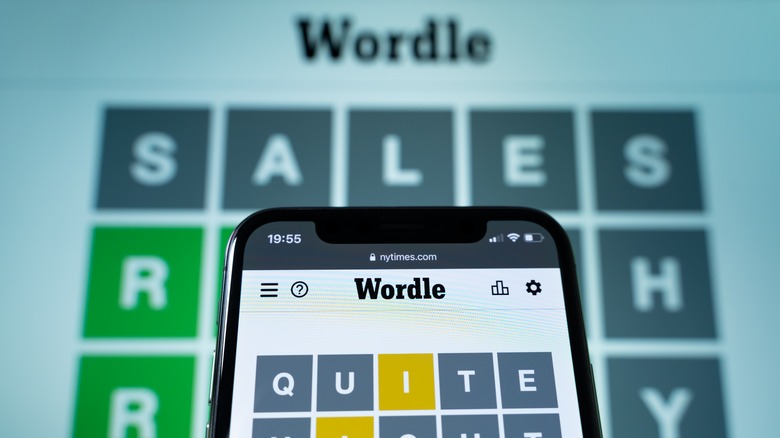Today's Wordle Answer #430 - August 23, 2022 Solution And Hints
The August 23, 2022 edition of Wordle is a rather tricky one, save for folks that are into the art of playing with fabrics and threads. For a bibliophile, the solution word is used to describe the intricate art of spinning stories around a character or an event. The answer to today's quiz is derived from a root word that also features five letters, but ends in an "E," instead of the letter "N" that is seen in the solution word. Are you still working on Monday's puzzle? We have some hints for that, too.
Here are some additional hints. The root word is a chore that is of fundamental importance to the textile industry — a task that is performed both by hands, as well as by heavy machines. However, the product of manual labor is more valued compared to its machine-made counterparts, even though the latter is more accurate, intricate, and efficient at scale.
The activity we are referring to pushed humanity into a new era of civilization, and its beginnings can be traced all the way back to the Neolithic age, dating roughly to the 9000 to 4000 BC window. It is one of the oldest skills that has been passed on from one generation to the next over the millennia and continues to flourish despite computers making inroads into the domain. Need more hints? Well, the word has two vowels — an "O" and an "E" — separated alternately by a semi-vowel right in the middle.
Quite a dive into the past
Well, now that you've reached this point, it means the answer still eludes you. The solution is "woven." The past participle of weave, woven refers to a fabric or garment that involves weaving during its production process. In the literary sense, it describes the act of branching out and connecting storyline elements like character arcs and plot twists. It can also refer to the activity of planning something or arranging for a specific objective.
Weave, the root word, is a derivative of the Old English term "wefan," which means forming something by interlacing yarns. The Proto-Germanic equivalent is "weban," while the Dutch link is traced to the word "weven." Interestingly, the past participle in Middle English was "wove," instead of "woven" that we use in our regular conversations.
A popular quote that uses the aforementioned word is from American fantasy fiction writer Jacqueline Carey, who wrote that "there is no saying how events in one place may affect what happens elsewhere, for the tapestry of history is woven of many threads." It talks about the fickle nature of history writing, and how narratives around a person or event can be vastly different depending on the lens you view it through. It also appears that there's an African indie film by the same name.

